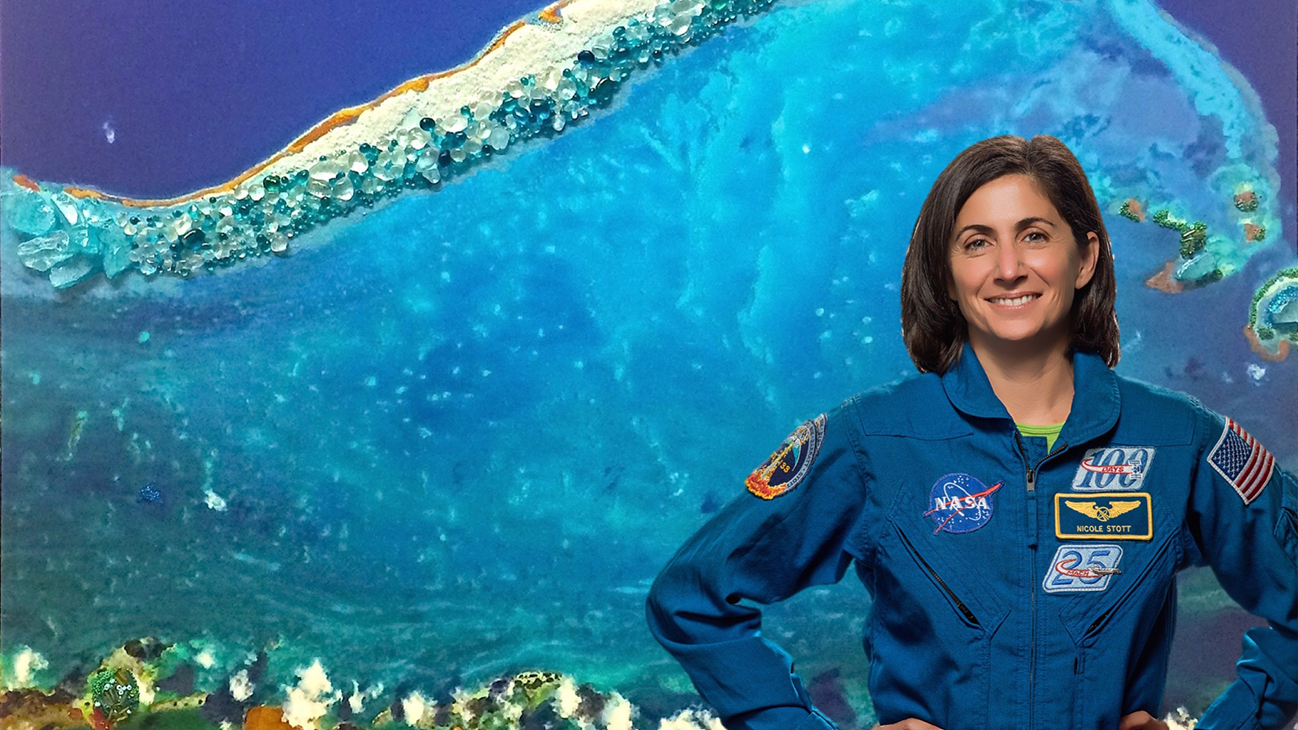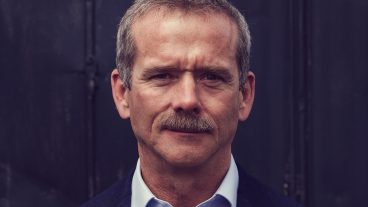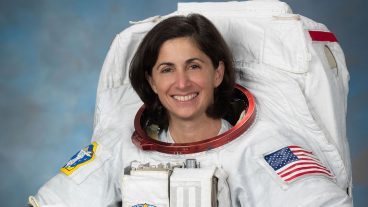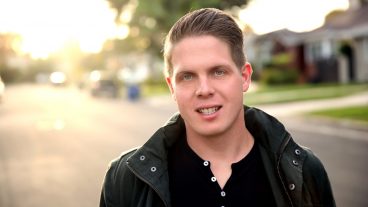With weeks of isolation under our belt now, many of us may feel like we’re just floating through time and space at the moment. No one can understand this more than astronauts who spend months alone, literally floating in space.
Retired astronaut Nicole Stott spent months aboard the International Space Station and never felt more alone then when she completed her first spacewalk. She created a video Op-Ed for The New York Times to share some of the lessons she learned while working in space, isolated from those she loves, with the most important being how even when we’re physically apart, we all remain inherently connected.
_________________________________________________________________________________
I know you’re probably feeling a bit disoriented right now, maybe you’re feeling like your a little cut off from humanity or that you just kind of drifting in space. I know what that’s like. My name is Nicole Stott. I’m an artist, a mom, and a wife, and I’m a retired NASA astronaut.
These days, I’ve been thinking a lot about the many months I spent on the International Space Station. 250 miles above the planet, separated from my family and friends, essentially quarantined with just my five crew mates.
Being in space changed me profoundly. The lessons it taught me are really helping me get through this time right now.
The most difficult thing psychologically to me about being in space is that you still miss that physical human connection. We would do virtual hugs or put our faces up close to the camera like we were kissing each other.
Just because I wasn’t physically with the people that I love, I didn’t feel cut off from them. And even looking out the window at Earth helped me feel connected to those people.
I have this vivid memory of seeing thunderstorms from space. It was like these tentacles of light, just moving from one place and wrapping around the earth. The planet looks like it’s alive.
Getting a new perspective on something helped me find ways to connect with it that I hadn’t before. During this pandemic, I’m trying to do that through my window here at home. Taking advantage of the time that I have to look around me and see things a little bit differently. Opening myself up to the opportunity that there might be something new to see or hear in this backyard that I’ve spent so much time before in. I think it’s really important to just appreciate the moment that you’re in.
In all those months that I was in space, the time I felt most isolated was during my spacewalk. And I remember thinking, oh my gosh, I am all by myself out here and the farthest person away form Earth and feeling a little bit alone. And yet, more connected to everyone around me then I had before too. I knew there were people who had my back. Even though I couldn’t see them, I knew there were a lot of people that were caring about what was happening to me.
The way we peacefully and successfully achieve our missions on a space station is the same way we should be doing it down here on Earth. We need to be behaving like crew members on spaceship Earth and not just passengers. And that’s what I think is really going to carry forward after all this.
We might not want to be self isolating and social distancing, but by doing it as a crew, we’ll come out on the other side for the better. And it will be worth it, because let me tell you, nothing beats that first hug after landing. It reminded me what normal feels like, what life is supposed to be like.
Nicole Stott has explored from the heights of outer space to the depths of our oceans. She has dedicated her life to sharing her spaceflight experience and the beauty of Earth with others. She believes that sharing the orbital and inner space perspectives has the power to increase everyone’s appreciation of and obligation to care for our home planet and each other.




